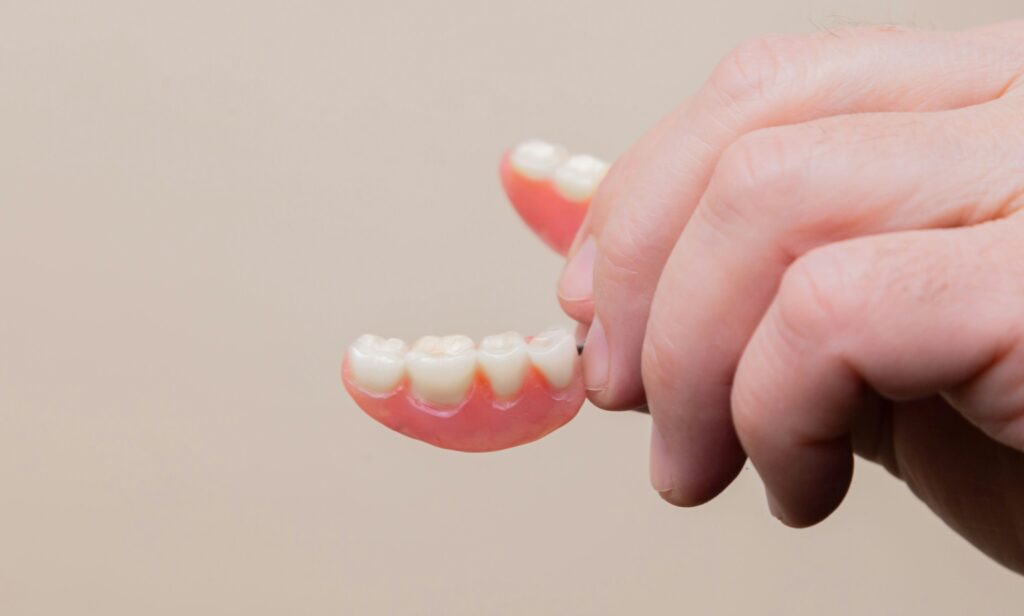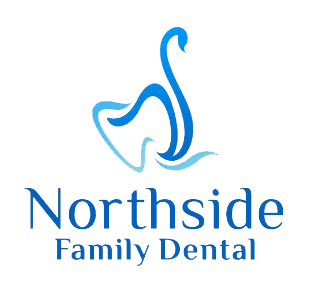Tooth loss is a common problem that affects millions of people around the world. There are several reasons why someone might lose a tooth, such as:
Accidents: Injuries from sports or car accidents.
Age: Natural aging process.
Decay: Poor oral hygiene leading to cavities and gum disease.
Disease: Conditions like diabetes and osteoporosis that weaken the teeth and gums.
Tooth loss can have a significant impact on both oral health and overall well-being, beyond just how it looks.
Key Impacts of Tooth Loss
1. Oral Health Complications
Bone Loss: When teeth are missing, the jawbone can start to deteriorate over time.
Gum Disease: The spaces left by missing teeth can trap bacteria, increasing the risk of gum disease.
2. Functional Issues
Chewing Difficulties: Missing teeth can make it hard to chew food properly, which may lead to digestive problems.
Speech Impairment: Teeth are important for pronouncing words correctly; without them, speech difficulties may occur.
3. Psychological Effects
Self-Esteem: A less attractive smile often results in lower confidence and social withdrawal.
Mental Health: Ongoing embarrassment or self-consciousness about missing teeth can contribute to anxiety and depression.
Understanding these effects emphasizes the need to address tooth loss quickly through proper dental care.
Exploring Tooth Replacement Options: Dentures vs. Dental Implants
- Dentures are removable prosthetic devices designed to replace missing teeth and restore the functionality and appearance of a natural smile. There are two main types of dentures:
- Full Dentures: These are used when all the teeth in either the upper or lower jaw are missing. Full dentures sit on top of the gums and are held in place by suction or adhesive.
- Partial Dentures: These are used when some natural teeth remain. Partial dentures consist of replacement teeth attached to a plastic base that matches the color of your gums, often connected by metal framework that holds the denture in place.
The decision between full and partial dentures typically depends on the extent of tooth loss and the specific needs of the patient.
Benefits of Choosing Dentures:
- Affordability: Compared to dental implants, dentures are a more cost-effective solution for replacing multiple missing teeth. This makes them an attractive option for many patients seeking affordable tooth replacement.
- Non-Surgical Nature: Dentures do not require invasive surgical procedures, making them suitable for individuals who may have health conditions that preclude surgery or those who prefer non-surgical options.
- Immediate Results: For those who have recently lost teeth or undergone extractions, dentures can be fabricated relatively quickly. This allows patients to regain their smile and oral function without a long waiting period.
- Removability: Being removable, dentures provide ease of cleaning and maintenance. Patients can take them out at night for cleaning, which helps maintain oral hygiene.
Types of Dentures:
- Conventional Full Denture: Made after the removal of teeth and once the gum tissue has healed.
- Immediate Full Denture: Inserted immediately after removal of remaining teeth, requiring adjustments as gums heal.
- Overdenture: Fits over a small number of remaining natural teeth or implants for added stability.
- Flexible Partial Denture: Made from a flexible material that can be more comfortable and aesthetically pleasing compared to traditional partials with metal framework.
These various types offer flexibility depending on individual dental needs and preferences.
From an affordability standpoint, dentures present an accessible entry point into tooth replacement options, especially for patients looking for non-surgical solutions. Their ability to restore not just function but also confidence in one’s smile underlines their continued popularity despite advancements in other dental technologies.
Exploring further into tooth replacement options reveals additional choices like dental implants, which will be discussed next, highlighting their unique benefits and considerations compared to dentures.

The Pros and Cons of Choosing Dentures for Tooth Replacement
When considering tooth replacement options, dentures present a viable choice for many individuals. There are various options available for replacing missing teeth, with a focus on dentures and dental implants.
Pros of Dentures
- Cost-Effectiveness: One of the most significant benefits of dentures is their affordability compared to dental implants. This makes them an attractive option for those seeking affordable tooth replacement.
- Ease of Use: Dentures, including partial dentures, are non-surgical and can be easily removed, making them convenient during the healing process after tooth extraction.
- Versatility: They can be modified if more teeth are lost later in life, providing flexibility in treatment.
Cons of Dentures
While dentures offer several advantages, there are potential drawbacks to consider:
- Aesthetic Concerns: Dentures may not look as natural as dental implants, which can impact confidence and appearance.
- Maintenance Requirements: Regular maintenance is necessary. Dentures must be removed, cleaned, and stored properly every night to ensure longevity and hygiene.
- Functionality Issues: They might slip while eating or speaking, leading to discomfort. They also limit the types of foods you can consume.
It’s essential to consult a dentist to determine the most suitable option for individual needs. Each patient’s situation is unique, and professional guidance can help navigate these choices effectively.
Exploring Dental Implants: A Permanent Solution for Missing Teeth
Dental implants stand out among tooth replacement options as a permanent solution for missing teeth. They are composed of three primary components:
- Titanium Post: Acts as the root of the tooth and is surgically inserted into the jawbone.
- Abutment: Connects the titanium post to the artificial tooth or crown.
- Crown: The visible part of the tooth, custom-made to match your natural teeth.
The benefits of dental implants over traditional dentures include:
- Stability and Comfort: Implants provide a secure fit that doesn’t shift, enhancing comfort while eating or speaking.
- Longevity: With proper care, dental implants can last for decades, making them a cost-effective long-term solution.
- Natural Appearance: Implants mimic the look and feel of natural teeth, offering superior aesthetics compared to dentures.
- Oral Health: Unlike partial dentures, implants do not rely on adjacent teeth for support, thus preserving overall oral health.
Consulting a dentist in Lakeland is crucial to determine whether dental implants or other affordable tooth replacement options like dentures are suitable for individual needs. This ensures personalized care is tailored to achieve optimal results for restoring smiles.
The Pros and Cons of Choosing Dental Implants for Tooth Replacement
Benefits of Dental Implants:
- Enhanced Comfort and Stability: Unlike dentures, dental implants are anchored directly into the jawbone, providing superior stability. This makes eating and speaking more comfortable and natural.
- Longevity: Dental implants can last for several decades with proper care, making them a durable tooth replacement option.
- Low Maintenance: Implants require minimal upkeep beyond regular oral hygiene practices, similar to natural teeth. There’s no need for adhesives or special cleaning solutions.
Potential Downsides:
- Higher Upfront Costs: Dental implants tend to be more expensive initially compared to dentures. However, their longevity can offset this cost over time.
- Surgical Considerations: The procedure involves surgery to place the titanium post into the jawbone. Not everyone is a candidate for this surgery, especially those with certain medical conditions or insufficient bone density.
When considering tooth replacement options, it’s crucial to consult with a dentist to determine the most suitable solution based on individual needs. Both dentures and dental implants offer unique benefits and potential drawbacks, making professional guidance essential in making an informed decision.
By exploring these aspects, individuals can better understand which tooth replacement method aligns with their lifestyle, financial situation, and oral health requirements.
Affordability Considerations in Tooth Replacement Choices
The cost factor is critical when choosing between dentures and dental implants. Dentures are often seen as the more budget-friendly option due to their lower initial cost. However, it’s essential to consider the long-term expenses associated with maintenance, potential replacements, and additional products like adhesives.
Dental implants require a more significant upfront financial commitment. Despite this, they offer remarkable longevity and minimal maintenance costs over time. Their durability makes them a cost-effective solution in the long run.
Northside Family Dental provides financing options to make dental implants more accessible. These plans can ease the financial burden by spreading out payments, allowing you to invest in a permanent solution without compromising your budget.
Finding the Right Dentist for Your Tooth Replacement Journey
Choosing a qualified professional who specializes in tooth replacement procedures is crucial. The expertise and experience of your dentist can significantly impact the success of your treatment and the longevity of your tooth replacement.
Northside Dentist offers a range of services to aid patients throughout their tooth replacement process:
Comprehensive Consultations: Detailed assessments to determine the most suitable tooth replacement option for each patient.
Advanced Diagnostics: Utilizing cutting-edge technology to ensure precise planning and execution of dental procedures.
Customized Treatment Plans: Tailoring solutions like dentures or dental implants to meet individual needs and preferences.
Post-Treatment Care: Providing guidance and support to ensure optimal recovery and maintenance of oral health.
Finding a dentist for tooth replacement involves researching professionals with proven track records in restorative dentistry. Prioritize those who offer personalized care, advanced technology, and comprehensive post-treatment support. Northside Dentist exemplifies these qualities, ensuring a seamless journey towards restoring your smile.
Taking Action Towards Restoring Your Smile: Consult Northside Family Dental Today!
Experiencing issues with missing teeth can significantly affect your oral health and overall well-being. It is essential to seek professional help promptly. At Northside Family Dental, our team specializes in restorative dentistry, offering personalized solutions that cater to your unique needs.
Why Choose Northside Family Dental?
Expert Care: Our dentists are highly trained in the latest tooth replacement techniques, ensuring you receive top-quality care.
Comprehensive Services: We provide a range of options, including dentures and dental implants, to restore your smile effectively.
Patient-Centric Approach: We prioritize your comfort and satisfaction, tailoring each treatment plan to align with your health goals.
Don’t let missing teeth compromise your quality of life. Schedule a consultation with us today to explore the best restorative options for you.
Frequently Asked Questions
What are the common causes of tooth loss?
Tooth loss can occur due to various reasons, including accidents, age-related factors, and dental decay. Understanding these causes is essential for preventing further oral health issues.
What are the benefits of choosing dentures as a tooth replacement option?
Dentures offer several advantages, including affordability and a non-surgical approach to replacing missing teeth. They can restore functionality and improve aesthetics, making them a popular choice for many patients.
How do dental implants differ from dentures?
Dental implants are a more permanent solution that involves surgically placing a titanium post into the jawbone, which supports an abutment and crown. In contrast, dentures are removable prosthetics that can be taken out for cleaning and maintenance.
What are some pros and cons of dental implants?
The benefits of dental implants include enhanced comfort, stability while eating or speaking, longevity, and low maintenance similar to natural teeth. However, they may have higher upfront costs and require surgical procedures.
How should I choose between dentures and dental implants?
Choosing between dentures and dental implants depends on various factors such as cost, aesthetics, comfort level, and maintenance needs. It's crucial to consult with a dentist who can provide personalized recommendations based on your specific situation.
Why is it important to find a qualified dentist for tooth replacement?
Selecting a qualified dentist specializing in tooth replacement procedures is vital for ensuring successful treatment outcomes. A skilled professional can guide you through the process and help you make informed decisions about your oral health.


